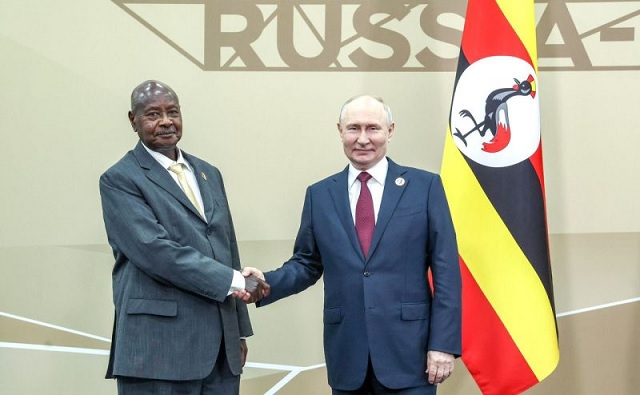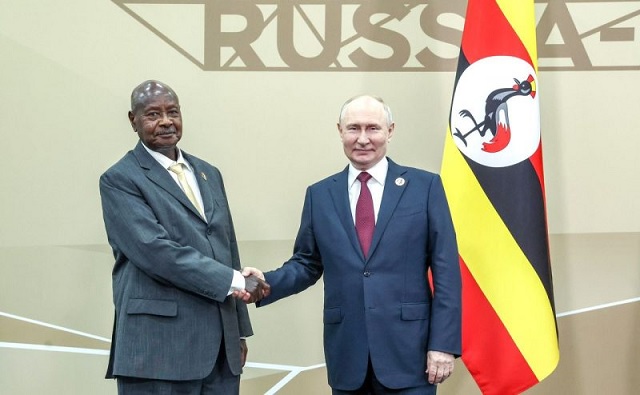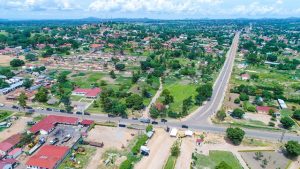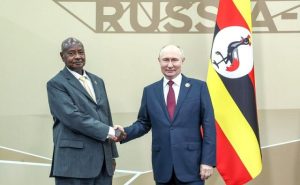What Uganda’s “BRICS Partner Country” status means


KAMPALA, UGANDA | THE INDEPENDENT | When the BRICS, a growing bloc of the world’s major developing economies, announced Uganda among the 13 new Partner Countries, there were questions as to what this meant and why Uganda, of all the others in the East.
It was the only country preferred by the BRICS in the East African Community, and which is dominated, arguably, in all measures by Kenya in terms of economic might, population and levels of development.
Original members include Brazil, Russia, India and China (BRIC), which were later joined by South Africa to form BRICS.
In the Eastern African region, only Ethiopia is a full member, having joined at the beginning of this year along with Egypt.
According to the BRICS definition, the Russian presidency will hold consultations with the partner countries to make membership of the BRICS official, though the date for this development was not mentioned, but could be within a year.
“If not by the end of the year, then next year, and the responsibility will pass to the Brazilian presidency,” Brazil’s Foreign Minister Mauro Vieira told the country’s media, adding that the leading BRICS countries had reached a consensus on the criteria and principles to inform the expansion of the bloc.
When Ethiopia joined BRICS, along with Egypt and Iran, they accessed all the benefits that come with belonging to the now 3.3 billion population bloc which also accounts for more than a quarter (28 trillion dollars) of the global GDP.
Apart from geopolitics, the benefits include closer economic cooperation, increasing multilateral trade and development, free flow of innovation and information, easier cross-border movement and generally improved cross-border business operations.
.For instance, bilateral lending (between member countries) is planned to remain at not more than 2 percent per year, a critical development for countries like Uganda which are experiencing dwindling sources of external support.
As a partner, Uganda and the other countries will be involved in negotiations with the President of BRICS, to assess “how ready they are for full-fledged or any other BRICS membership”, according to the procedures adopted at the 2023 Brics Summit in Johannesburg, South Africa.
A country seeking to enter the bloc has to formally convey their intentions to the Chair of the bloc, and this is then discussed by the personal representatives of a member state’s leader (SHEPERS) and foreign ministers ego then consider the application before recommending it to the top leaders.
If any of the five original members of BRICS rejects a name, the country is not admitted.
While the status and the rights and obligations of the partner countries are yet to be made public or outlined, they are not expected to have voting rights that members like Ethiopia, South Africa and Egypt enjoy.
Uganda’s benefits from BRICS are therefore likely to be visible after a successful vetting or probational period.
The International Municipal BRICS Forum ambassador in Uganda Patricia Kishemeire, says as its ambassador to Uganda this shift represents a chance for African nations like Uganda to reduce their dependence on Western powers and expand alliances with emerging economies.“
For Uganda, this opens avenues to strengthen international relations beyond the West, fostering new partnerships with BRICS nations such as Brazil, Russia, India, China, and South Africa.
This diversification could lead to more equitable trade agreements, increased investments, and greater diplomatic influence,” she says in a commentary.
She also looks forward to that moment which will mean diversified sources of external finance and ease the challenges that are increasingly coming with negotiating with traditional lenders.
“Africa and Uganda especially have been left to the whim of lenders like IMF and World Bank, BRICS presents new financial alternatives such as the New Development Bank which supports public projects through equitable lending and participation.”
She that through trading with BRICS, African countries could reduce dependency on the US dollar and lessen the vicious debt burden and sanctions.
*****
URN
The post What Uganda’s “BRICS Partner Country” status means appeared first on The Independent Uganda:.





